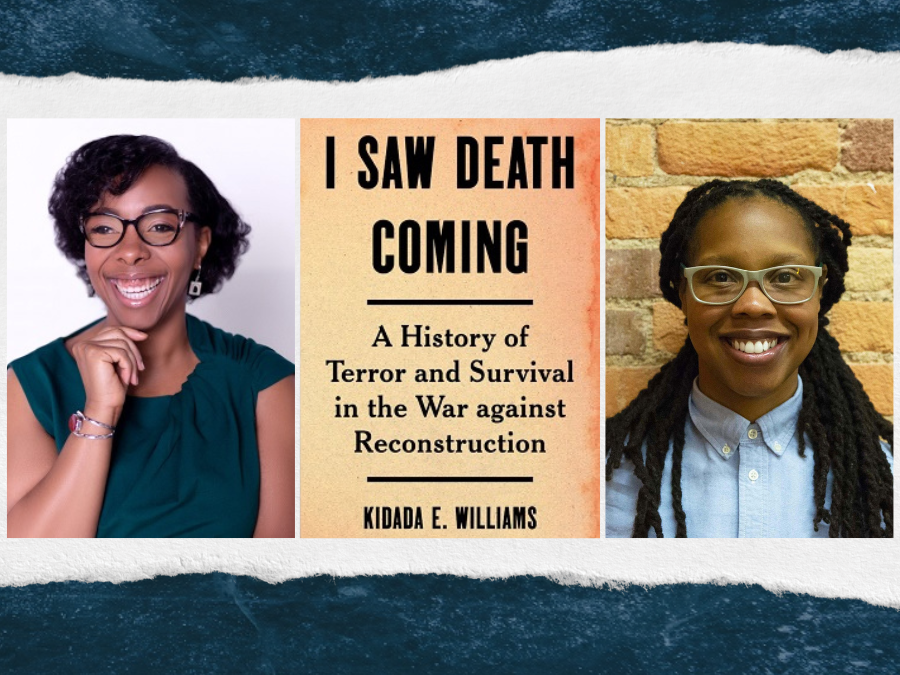
Kidada E. Williams and Jessica Rucker
As part of the Zinn Education Project’s Teach the Black Freedom Struggle online people’s history series, historian Kidada Williams joined Prentiss Charney Fellow Jessica Rucker to discuss Williams’ latest book, I Saw Death Coming: A History of Terror and Survival in the War Against Reconstruction. According to Williams,
Survivors’ searing recollections of the war after the Civil War bring to light the ways that Reconstruction did not fail but was violently overthrown. . . . In naming their attackers, detailing their injuries, saying the names of their slain kin, crying out for justice, and keeping the record alive, survivors and their descendants said Black people’s lives, freedoms, and futures mattered. Testifying about the war on freedom was survivors’ defense against its erasure.
Participants shared what they learned and additional reflections on the session:
Two weeks after the online class, the Zinn Education Project hosted a curriculum workshop for Teaching for Black Lives study groups and other social justice educators. Jessica Rucker facilitated the workshop, which focused on the classroom implications of Williams’ book. She opened by asking participants to answer and discuss two questions:
- What, if anything, do you recall learning about Reconstruction in school?
- What is the dominant story of Reconstruction you encounter in popular culture?
Participants referenced the 13th, 14th, and 15th amendments, the idea that Reconstruction quickly failed or “just didn’t work out,” and many didn’t recall learning anything at all about Reconstruction in their K–12 education. As one participant commented in the chat:
The trend of our collective experience demonstrates that Reconstruction is terribly missing from our education.
Attendees engaged with excerpts from I Saw Death Coming, compiled by Rucker. Educators also listened to an audiogram from the online class with Williams.
In a breakout room, they shared quotes that stood out and answered the question: What themes from these quotations would you want to lift up with students? Why?
For the final portion of the workshop, attendees read and analyzed primary resource documents, made available by Rucker, from the collection, Reconstruction Violence and the Ku Klux Klan Hearings, edited by Shawn Leigh Alexander.
Read key takeaways from workshop participants below.

